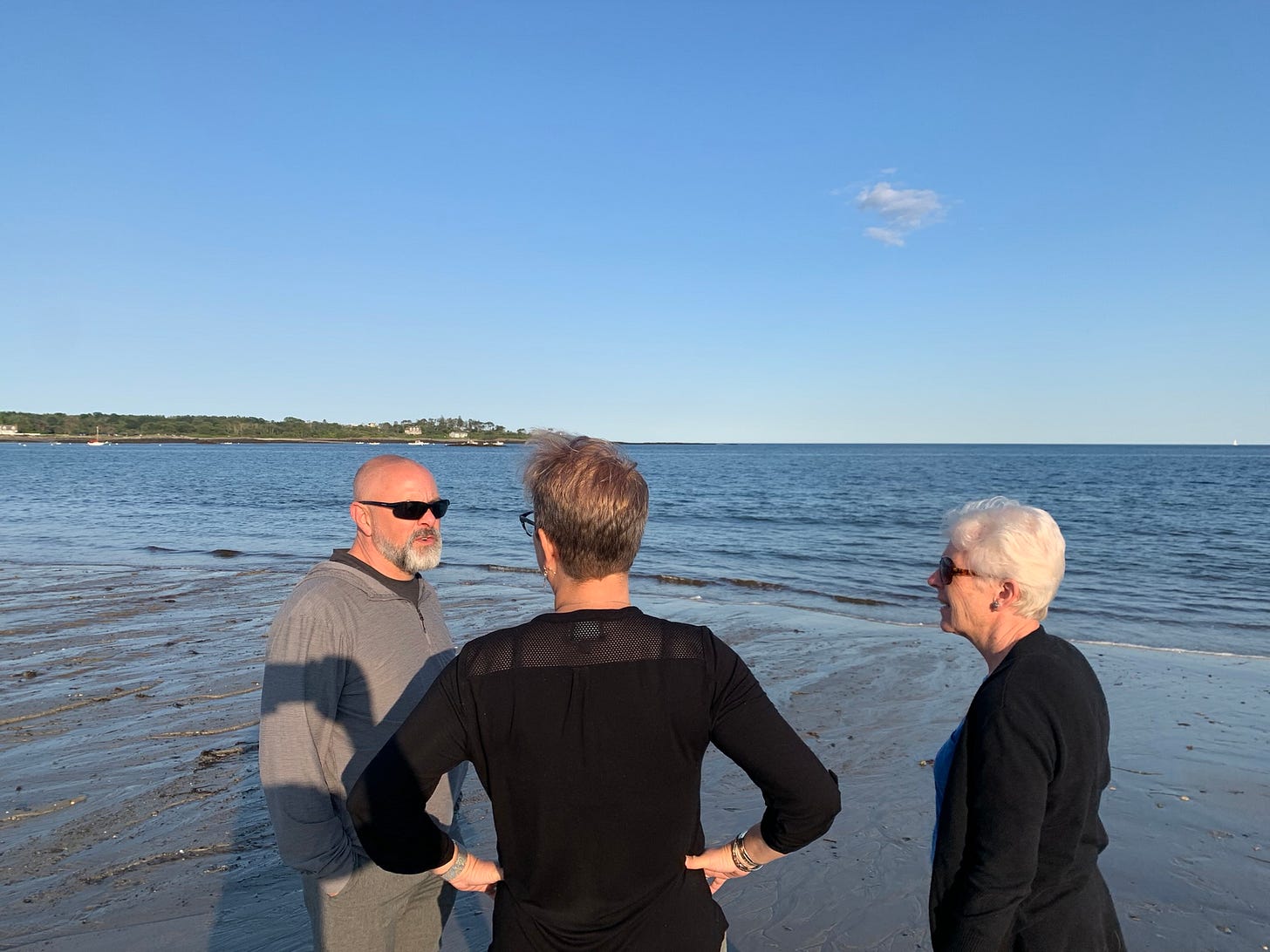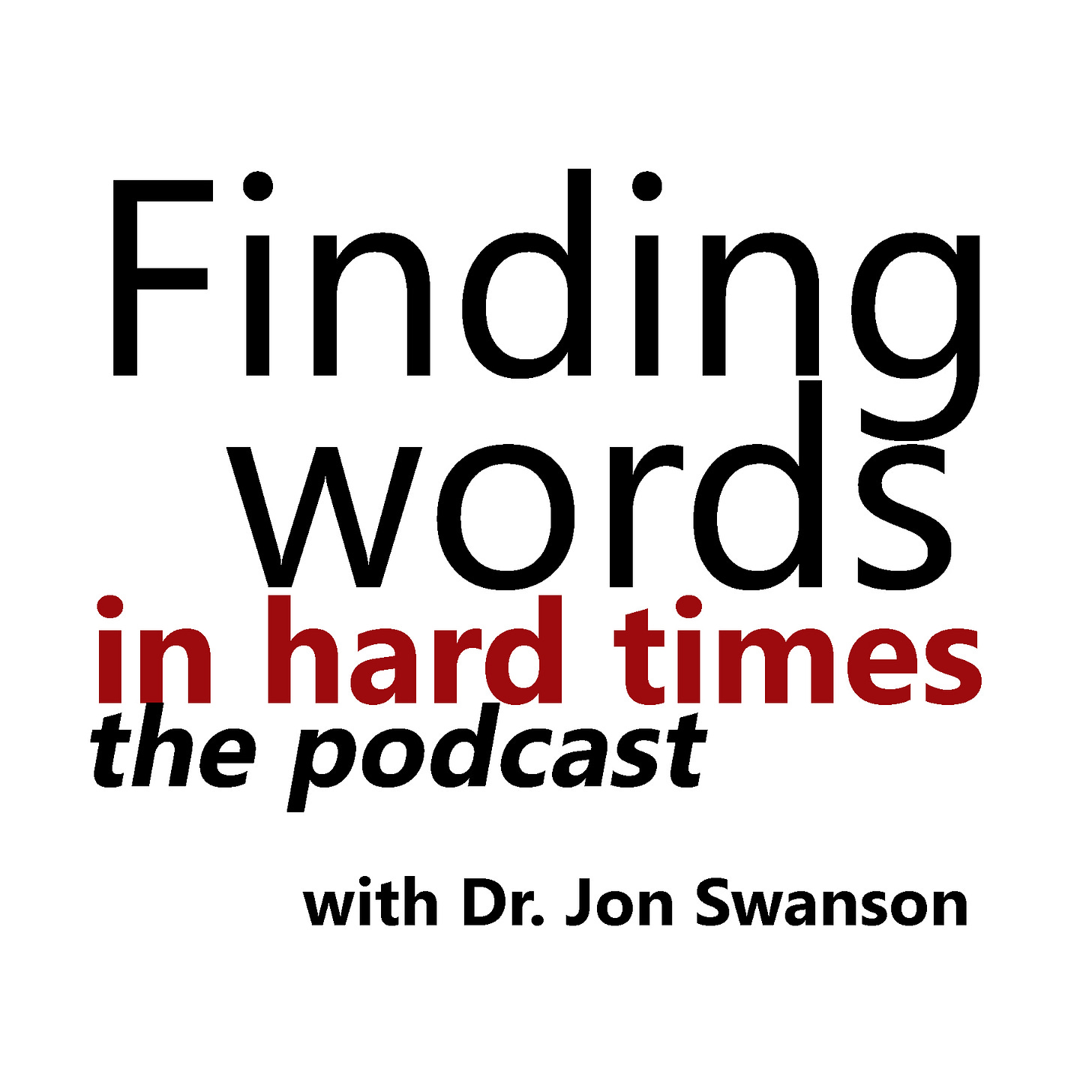049 - Here. Now. A simple recalibration
When the projects seem overwhelming, start with the person in front of you.
Welcome back! (or welcome!)
Last week, I talked about the list of things I wrote to myself and carried with me as I chaplain. I encouraged you to make your own list. (I hope that you considered that this week.)
One of the sayings on my list is this: Here. Now.
I wrote that in the second year or so of chaplaincy. I didn’t have to worry every moment about not messing up. I was learning to anticipate, to look around the room. And, I discovered, I was looking down the road.
What I don’t remember now is what happened. However, I remember realizing after a conversation or two that I had been distracted. I’d been thinking about implications, considering recommendations, aware of the next couple things to do. And I wasn’t paying attention.
No one died. At least because of something I did or didn’t do. My work isn’t like that.
But I knew I needed to recalibrate. Whatever was happening or could be happening or had happened in other parts of the hospital, in other parts of my life, in all the rest of the universe were not in this place or this time. What is here, what is now, is two people, in each other’s presence, with one of them attentive to the other. By choice.
Here. Now.
I’m thinking about those words more. The news cycles are demanding attention. Our feeds are full of friends and unknown people in catastrophic situations, and in restaurants with slow service. There are so many demands on our time and attention and our expectations that we end up feeling overwhelmed and distracted.
Which is why you and I can offer ourselves and each other two simple words.
Here. Now.
What we sometimes remember is that our action in this moment has consequences for the next. We often think of the word “consequences” as mostly negative. It doesn’t have to be that way. Inviting and listening to another person’s story, the one they have never had a safe person to tell, the one that they are finally getting to in their last 72 hours, can consume time. But it also can be a gift of time. As they speak, they may have a moment of peace, a moment of being understood, a moment of being.
And in the offering of the gift, we can be aware that there are people other than ourselves.
It’s what we’ve got, after all.
Here. Now.
+++
This morning, the first episode of Finding Words in Hard Times – the podcast came out on Apple and on YouTube. You can play it directly from the website, too.
Finding Words in Hard Times - the podcast on Youtube
Finding Words in Hard Times - the podcast on Apple
Finding Words in Hard Times - the podcast website home
It started because on December 7, after a run, I asked this question on Instagram and Facebook:
What if I took some of the statements from “this is hard”, my collection of things I say to people when their loved ones have died, and I did about a six-episode, podcast, expanding on those statements and chapters. There would be a little more explanation, there would be a little bit of example, and each one would be probably between 12 and 15 minutes long. Would you be interested in listening?
Some people, some of you, said that you’d be interested.
Thank you.
+++
Did you know that four years ago, I wrote a simple handbook about how to lead a funeral, memorial service, or celebration of life? That’s what it’s called: Giving a Life Meaning: How to Lead Funerals, Memorial Services, and Celebrations of Life.
Based on more than thirty years of helping people communicate, of helping people think, of helping people sort through hard situations, this book offers frameworks, options, and samples. It covers the service itself, starting fifteen minutes before and ending at the cemetery. We’ll talk about how to start, how to decide what goes in the middle, how to build a message, and how to finish the service.
There is an extensive chapter on services for infants and several samples of messages, a few checklists, and as much encouragement as can fit in a small book for a tough time.
My friend Patrick said, “Recently I found myself doing a funeral last minute for someone I didn’t know personally. It was in the middle of a very busy time. I picked up this resource and it helped me to quickly and confidently put together a message and service that remembered and celebrated the person who had died in such a meaningful way! If you need to lead a memorial service or funeral, buy this book today.”
If you know someone who needs this resource, I’d love for you to share it with them.
Giving a Life Meaning: How to Lead Funerals, Memorial Services, and Celebrations of Life.
+++
Thanks, as always, for your support, encouragement, questions, suggestions, shares, and all. I’m grateful.
See you next week.
Jon






